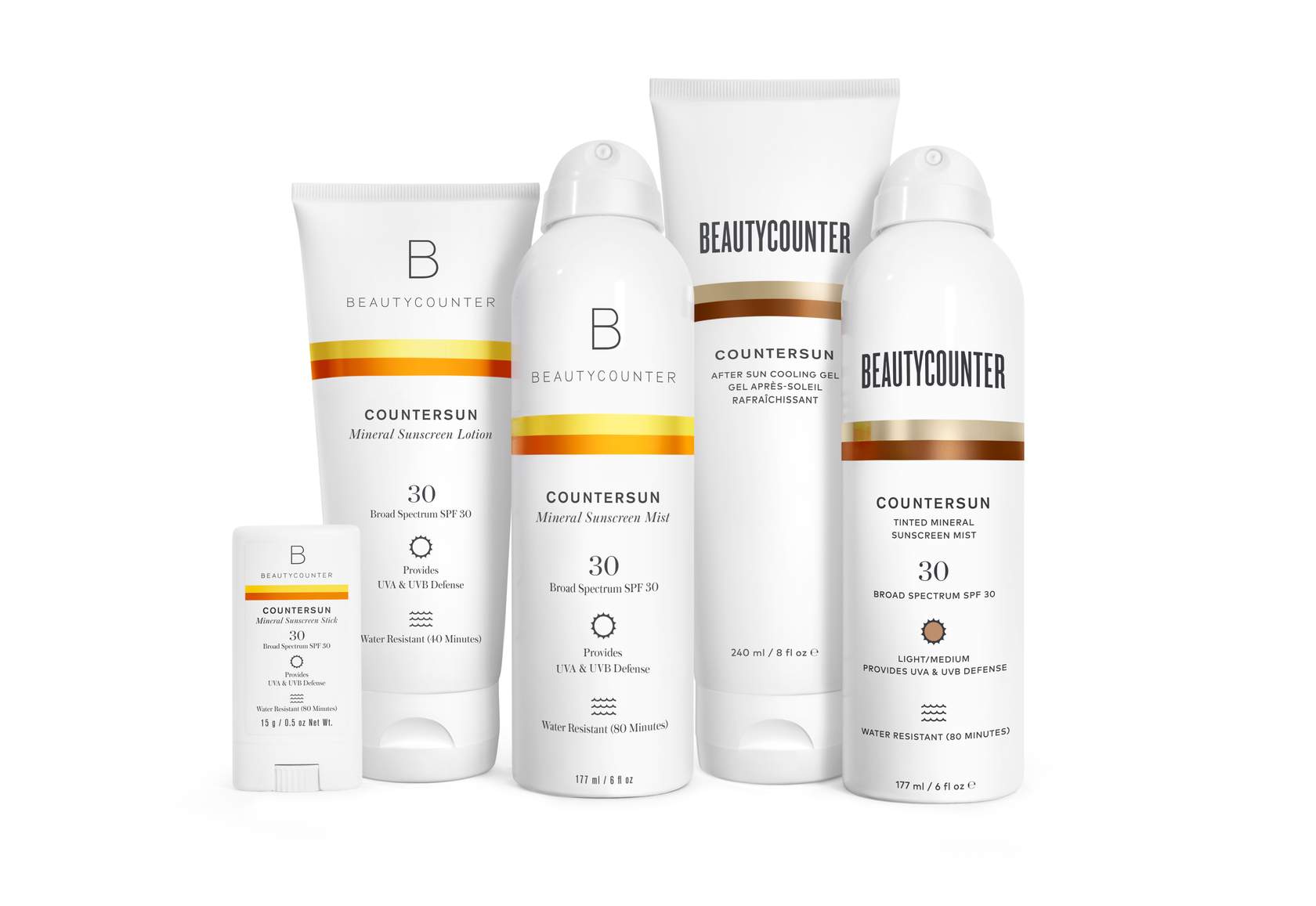Sunscreen is a crucial skincare product because it protects us from the sun’s UV rays – known as UVA and UVB rays. UVA rays can cause long term damage as they penetrate deep into the skin. This results in premature aging, dark spots, wrinkles, and fine lines. UVB rays are the type which most of us are more aware of as they cause our skin to burn.
Sunscreen is a skincare product we have all used since a young age (we’re recommended to use it from the age of six months). At a young age we probably didn’t appreciate our fun being interrupted to be slathered with a white, sticky cream. Luckily, sunscreen products have evolved since then and a sunscreen mist is a much quicker and less messy alternative when we are on the go.
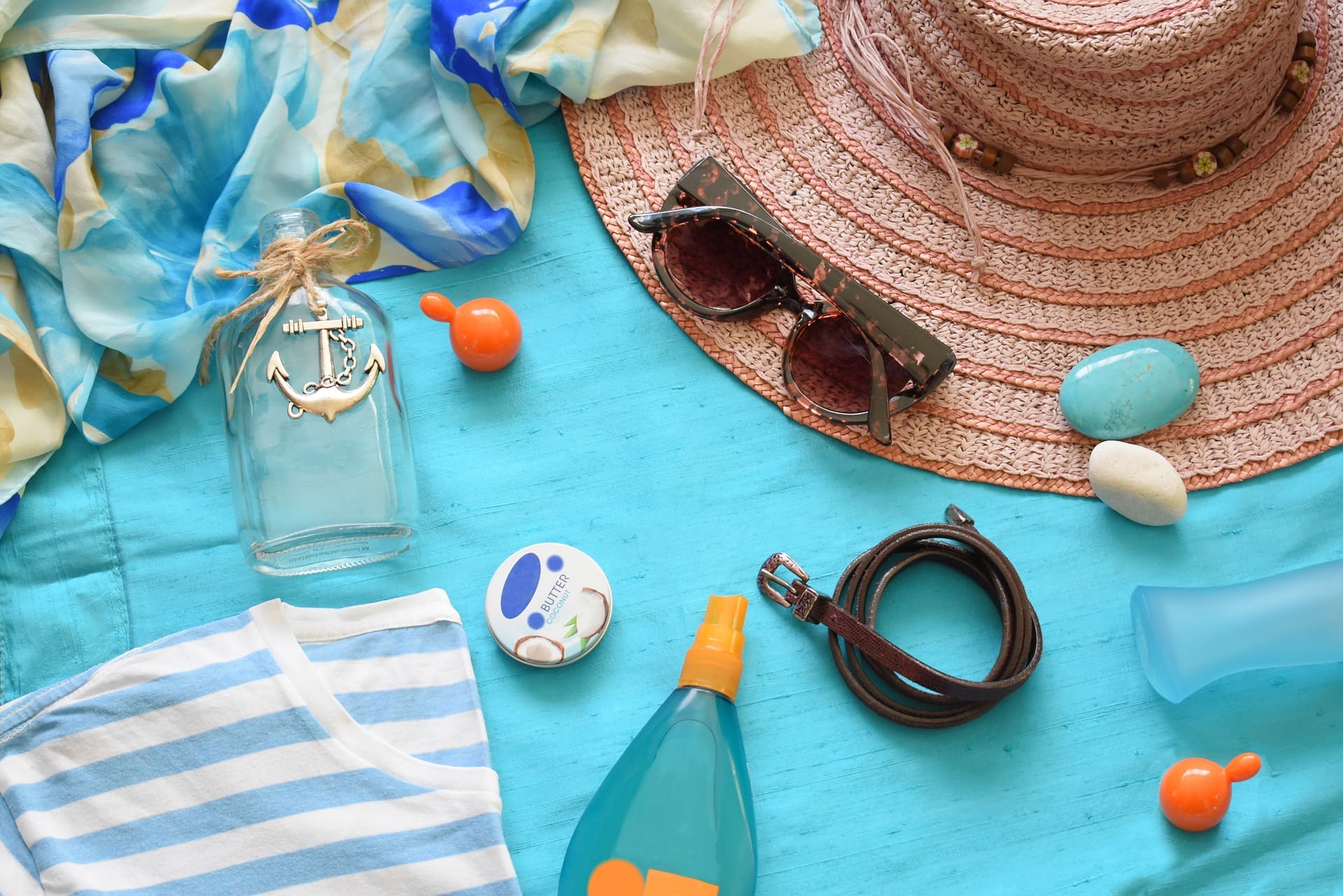
Should you wear sunscreen everyday?
Although not essential, it is highly recommended to wear a SPF 15 or SPF 30 daily on the face, ears, neck and hands, as these are most exposed to the sun. While many of us only tend to wear sunscreen when we spend time in the sun, UV rays are always present and can actually cause sun damage when you least expect it.
UVB rays remain present on both hot and cold days and are not blocked out by the clouds – a common misperception. The benefits you will see from wearing sunscreen every day is a longer duration of youthful skin, avoiding fine lines, wrinkles and dark spots.
What do the SPF measures mean?
SPF stands for Sun Protection Factor. The SPF measures you find on sunscreen are written as SPF 15, 30, 75 etc. These are commonly known to be the measurement of the strength of the product.
However, what some may not know is that the different strengths also determine the duration of time you can spend in the sun without burning. For example, an SPF 15 would provide adequate protection for you to spend around 150 minutes in the sun without burning.
In contrast, a higher SPF strength, such as SPF 75, would provide stronger protection and for a longer duration of time.
Is your sunscreen destroying the coral reefs?
I recently came across an article which reported that 2 ingredients within sunscreen are doing just this. The 2 ingredients are known as oxybenzone or octinoxate (they can also be found on labels as benzophenone-3 and octyl methoxycinnamate).
Research has shown that these chemicals increase the bleaching of coral. In addition, they can also cause DNA damage to baby coral which leads to abnormal growth and deformities.
This has been most noted in Hawaii, who are set to ban the sale and distribution of products containing these ingredients. The chemicals have been found at toxic levels in Hawaii’s algae, dolphins, fish, crayfish and sea turtle eggs.
The official ban is set to be put in place in January 2021, if it is approved. Although this issue is mainly a local issue to Hawaii at the moment, the government would encourage us all to use “reef-safe” sunscreens.
What sunscreen to buy?
After reading the above, you may not know where to start in your search for a sunscreen without these ingredients. It has been reported that around 3,500 products containing these chemicals are available worldwide.
The sunscreen products I use from BeautyCounter strictly do NOT use oxybenzone or octinoxate in their formulas, as the brand is aware of the effects on the coral reefs around the world. In addition to looking after the planet, BeautyCounter also make sure their products are safe for people to use.
For example, BeautyCounter only sells mineral sunscreens using natural ingredients, including Zinc Oxide and Titanium Dioxide. These only sit on the surface of our skin to reflect UV rays away from us.
This is different to more synthetic SPF filters, which are known to cause skin irritation. This makes BeautyCounter sunscreens suitable for those with sensitive skin and children.

Tips for protecting you from the sun:
- Wear a hat, sunglasses and protective clothing.
- Avoid sitting in peak time sun.
- Do not use makeup containing SPF as a sunscreen replacement as this does not provide enough protection (You would have to put on around 8 layers to achieve just sufficient coverage).
- Ensure you top up your sunscreen every couple of hours (or more frequently if you are sweating or swimming, as this will dilute the sunscreen).
- Check the expiry date of your sunscreen – the active ingredients will not continue to protect you to their full effects if there out of date
- Don’t fear getting breakouts from your sunscreen. This is more likely to be caused by sweating.
- Use a mist to apply sunscreen to your scalp (if not wearing a hat) – Sunburn on your scalp is seriously painful.
- Aim to apply the sunscreen before getting dressed. Your SPF requires at least 20 minutes before your skin is fully protected from the UV rays.
These are the sunscreen products I regularly use:
BeautyCounter Countersun Mineral Sunscreen Mist SPF 30 (Travel Size)
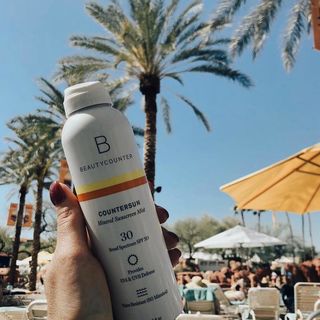
One of my favourite sunscreen products, and it seems I am not the only fan of this product seeing that it is a best-selling product! It is easy and convenient to use, and is available in full size and travel size (as linked).
I find the travel size perfect to put in my purse for reapplying sunscreen throughout the day. The packaging is also safer for our environment (compared to other sprays) because it isn’t an aerosol.
Countersun Mineral Sunscreen Lotion SPF 30
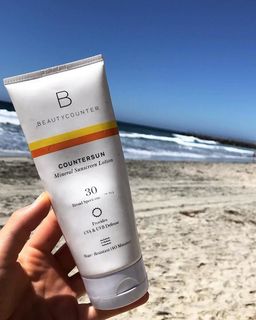
My go-to sunscreen for a day at the beach because it is water-resistant and lightweight. This product is also an award winner of Allure’s 2018 Best of Beauty.
Countersun Mineral Sunscreen Stick SPF 30
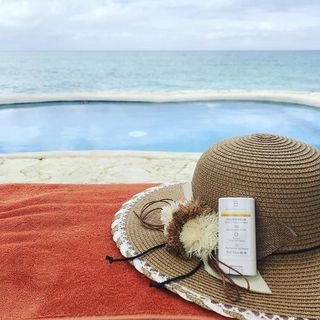
If you are unsure about which sunscreen to use for everyday use, I would recommend this one. It easily glides onto the skin without being sticky or greasy. It also smells great due to the infusion with cocoa butter – which is also super hydrating for your skin.

